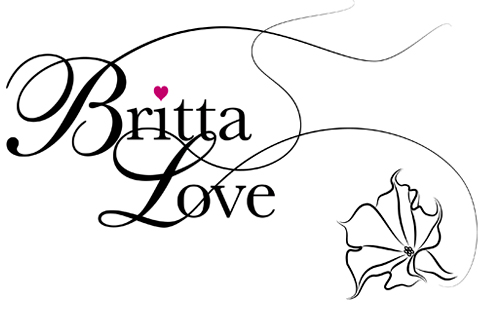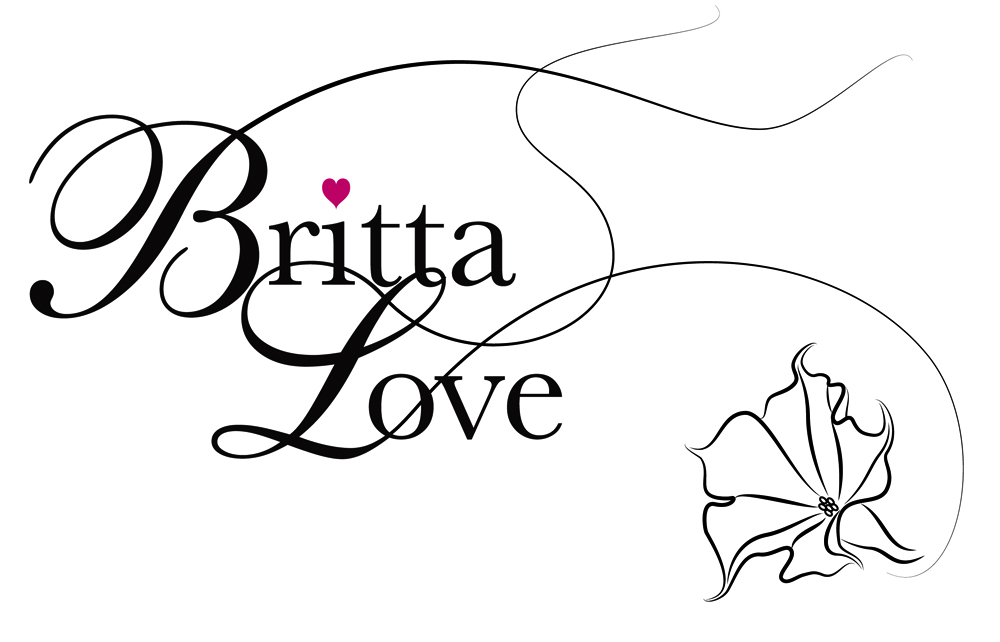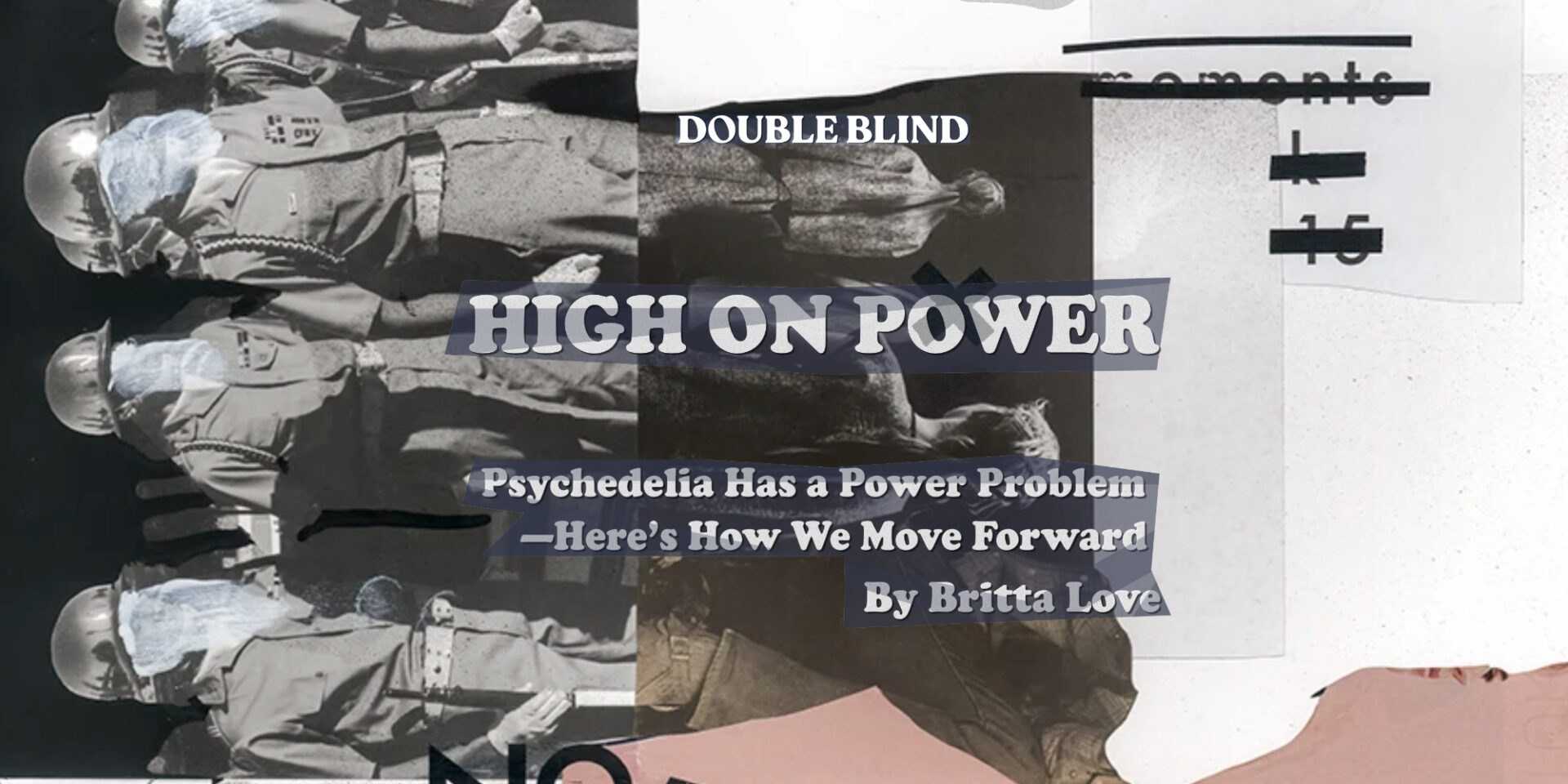Artwork by Jeremy Dziedzic
Originally published in Double Blind Magazine online and in print in Issue 9
In subtle and not-so-subtle ways, most psychedelic communities I’ve been a part of over the past thirteen years have deep issues around power, consent, and harm. This is, ultimately, no surprise as psychedelic communities are a mere microcosm of the culture-at-large. Psychedelic communities, however, often posit themselves as different and more “evolved.” This can make the harm more insidious. Combined with mentalities such as “high vibes only,” “everything happens for a reason,” “spirit above politics,” and other prevalent spiritual bypassing rooted in the wider “wellness” and New Age communities—or, alternatively, cultural deference to “professionals” in medicine and psychiatry where abuse is rampant but rarely recognized—we have ourselves a real problem.1
There are multiple ways each and every one of us can take action to address these issues:
1. Develop an awareness of power dynamics, privilege, and oppression and integrate that awareness into how we walk through the world.
2. Commit to our personal “shadow” work, come into relationship with all of our parts, and find conscious and appropriate places to allow wounded parts to express themselves.
3. Become aware of and shift unconscious and embodied patterns of entitlement and submission.
4. Model and build cultures of consent in every psychedelic space.
5. Shift out of encultured responses of bypassing and defensiveness when harm is reported and build cultures of self and collective accountability.
This article will briefly touch on all five of these points, with a primary focus on deepening our embodied understandings of power, entitlement, submission, and consent. These conversations have been happening in other communities for a long time; queer and sex-positive communities, in particular, have informed my learning and thinking here.

Artwork by Jeremy Dziedzic
As psychedelic communities, we are collectively still at the very beginning of a large and deep conversation that needs to continue to unfold and develop, with the investment of time, energy, and resources (particularly by those who stand to profit from psychedelics or who are positioning themselves as leaders and guides). These issues must be a priority in order for our spaces to truly be spaces of healing. My thoughts and writing here are just one lens, a jumping-off point that I hope leads to more spaces to “circle up” and evolve conversations (where each of our unique perspectives and intelligences are allowed to inform the emergent intelligence of the group, which is far larger than the sum of its parts).2
Cultures of domination (like colonial Western culture) train us to look for answers within hierarchical models of leaders and “experts,” helping to sustain the kind of exploitative and abusive power-over dynamics we’re looking to address, power which is built on force, control, and fear.
Power
Let’s start with an honest examination of each and every one of our differing relationships to power. This is no easy feat, partially because when we have power it often feels invisible to us. The same goes with “privilege,” a word many find themselves resistant to (often because it can be difficult to square with their internal sense of self). It can hurt to acknowledge power and privilege because often we still feel so personally disempowered in our day-to-day lives—and, yet, that sense of smallness or insecurity is not an accurate measure of our lived impact on others.
Max Weber, the German sociologist, defined power as “the probability that one actor within a social relationship will be in a position to carry out his own will despite resistance.” This can involve an explicit overpowering of another—or, more commonly, that possibility can be implied through the dynamic of the relationship. Consent is severely compromised by power dynamics: Even when we are told we have a “choice,” if there are implied, heavily unequal consequences of that choice, consent cannot be truly given. Failing to recognize when we’re holding power can therefore lead us to commit real harm, even without our awareness—we don’t see how the person on the receiving end feels powerless, without choice or voice, or feels obligated (or even desires) to subjugate their desire to ours in order to avoid the consequences of disrupting the dynamic, at their own expense. The fact that power operates in such a way that we often only notice it when we don’t have it (particularly when we’re on the receiving end of someone else’s) is one reason why it is so important to center and listen to the voices of those most marginalized (by the larger structures of power: white supremacy, patriarchy, colonialism, ableism, sanism, heteronormativity, whorephobia, and more) in our communities.
 Artwork by Jeremy Dziedzic
Artwork by Jeremy Dziedzic
The structures of power from the oppressive systems we live under are alive and well in our spaces, just as they are everywhere else. We need more queer, trans, female, Black, POC, sex worker, disabled, neurodivergent, and working-class leadership and facilitation in our communities.
Learn More
At the same time, replacing who is in power without a simultaneous cultural shift in our relationship to shadow, power, and accountability will lead us in a circle—replicating harmful structures regardless of who is elevated within them. I’ve seen the beginnings of this, too, in small radical spaces where the basic model of hierarchical structures of power (and heavily traumatized dynamics) remain in place. The problem of “power over” is a human problem that in our particular space and time has been constructed along the axes of whiteness, maleness, straightness, ablebodiedness, and more. That doesn’t mean they are the only axes along which these patterns can be enacted, but they are the ones structurally supported in this timeline.3
We need radical changes to bring equity to our communities, there is no question about that. It is a both/and. Alongside disrupting the existing axes of power in our communities, we also need to focus on building models of “power with” rather than “power over” (or the power to dominate).
Wounds
When our (often younger) wounded parts show up, triggered by something in the present moment, we often move and react from that place. We all do that. But when we do that as the person up on power within a relationship or dynamic, the impact can be disproportionately harmful.
In my time processing harm in psychedelic communities, the patterns have repeated themselves time and time again. A male practitioner with wounds around love and desirability inflicts harm in enacting those needs and desires without awareness of his power as a space holder or community leader. The leader of an organization fails to recognize their impact on the community, blinded by their inability to accept criticism or recognize the power they hold. Sometimes harm is committed consciously and with ill intent. In my experience, more often, it’s committed through a combination of blindness to power and privilege—and the undealt with shadow material we all hold. (The situation is then further exacerbated by a lack of practice in vulnerable self-accountability in leadership.)
We all have wounded parts that have more unsavory desires than we’d often like to admit: parts that want to dominate, to punish, to hurt, to coerce, to hide, or to get needs met at any cost. Building a relationship with those parts, so that we can keep a careful but loving eye on where they present themselves, is certainly work psychedelics have the potential to help us with.
Entitlement and Submission
One of the biggest revelations of my adult life came through studying with Dr. Betty Martin and learning about her Wheel of Consent. The wheel maps four quadrants of relating based on whether we are the giver or receiver, and who the action is for. For example, I may be touching someone for their pleasure (because they asked for a neck massage) or for my own pleasure (because their hair looked nice and I wanted to play with it).
Conversely, I may be touched for my own pleasure—or for someone else’s. Our language and culture often shy away from the latter dynamic of each of those examples, where someone is doing the action, for their own pleasure and the other person is consenting to that being done to them, but not for themselves—the quadrants named “taking” and “allowing.”
Taking has a deeply negative connotation in our culture, and, in some ways, that is for good reason. Taking without consent—or as we say in the Wheel of Consent, operating in the “shadow” of the “taking” quadrant—can involve assault, harassment, theft, and rape. However, we each have a deep human need to express ourselves in all four quadrants of the wheel—by serving, accepting, taking, and allowing.
When we repress that need, as our culture tends to repress the need to “take” as well as the need to express desire more broadly, we leave it to the shadows. (This happens on both the individual and collective level—in the broader picture of our systems of racial capitalism and colonialism, the predominant modes are in the “shadow” of the taking quadrant—taking and exploiting without consent.) We all need to cultivate a healthy relationship with our desire to take, and express it in appropriate places where consent is possible—otherwise, it will find a way to express itself in the shadows.
 Artwork by Jeremy Dziedzic
Artwork by Jeremy Dziedzic
In my time in many Wheel of Consent workshops over the years, I’ve been astounded to experience and witness the variety of ways we are patterned in our relationships to each of the four quadrants of the wheel. Sometimes this patterning follows broader social patterns along axes of power: Straight cis men are often socialized to hold more unconscious entitlement (more comfortable with the quadrants of the wheel that are for them, accepting and taking), cis women are more often taught to hold patterns of submission (more comfortable with the quadrants of the wheel that are for the other, serving and allowing). But, ultimately, every individual is different, and these dynamics can express themselves wildly differently within differing contexts (for example, when an intersecting power dynamic such as race or disability is present alongside gender). Intersectionality, the interconnected nature of social categorizations such as race, class, and gender, is certainly at play in our models of consent as well.
Discovering how difficult it was for me to even know what I’d like to “take,” and experiencing how comfortable I was in “allowing” touch, gave me insight into many complex experiences of harm in my history. While my embodied patterns of submission in no way excuse the behavior of those who often failed to ascertain any explicit or verbal consent from me, they certainly helped me understand the inner workings of the dynamics in those relationships.
These dynamics can often be tied to trauma—freeze and appease responses can be seen as embodied patterns of submission. While unfolding that trauma needs ongoing emotional support of the kind a workshop cannot provide, Wheel of Consent workshops and practices can be fertile training grounds for repatterning and exploring new ways of moving through the world.
I also experienced my own entitlement showing up, more with some people than others, in these workshops. It was humbling to realize that I, too, could be a person taking more than was agreed to, or that I could be misattuned to the other person, who was struggling to break out of their own patterns of submission.
The Wheel of Consent is best understood through playing the three-minute game. The game involves playing with a partner and taking turns asking the questions, “How would you like to be touched?” and “How would you like to touch me?” The four turns you take when doing so make up the four quadrants of the wheel—and this is a much better way to come to know them than to stare at the image of the wheel (which made little sense to me when I first saw it). This is body-knowing more than mind-knowing.
Building consent culture means each of us becoming better attuned to how we are carrying these patterns. It is not enough to say “no means no” when we aren’t also empowering choice and voice in our spaces. Most of us do not have easy access to “no,” and for good reasons. Many of us also are not comfortable receiving a “no,” which is another part of the problem. Beginning with lower stakes exercises and practices such as the three-minute game, that allow us to explore our patterned dynamics, is crucial. As we integrate what we learn, we’ll find many ways that our spaces and events can be constructed differently to encourage a culture of consent.
Accountability
Accountability, especially in leadership, is vulnerable. It is not something we often see modeled in colonial Western culture, rooted as it is in dualist thought around good/evil and guilt/innocence. When we do receive an apology, it often isn’t a good one—or there is little follow-up to demonstrate change and growth. More often, we witness PR games to throw the blame around and deflect accountability to avoid the stigma of “guilty” and “bad” at all costs.
I believe psychedelics could facilitate the dissolving of that binary and the building of a different culture, if used with that intention. This starts with our ability to hold complexity within ourselves and those we love. If we cannot hold that a beloved friend, family member, teacher, or guide could be both a person who has given us so much—and a person capable of committing grave harm—then we cannot hope to break out of the cycle of silencing those who have been harmed.
Breaking the Cycle
We often find the same harmful abuses of power in our leaders and healers in psychedelic space as we find in the overculture—and the same reactions of minimizing, defensiveness, and denial. Oppressive power-over systems become internalized, embodied, and replicated in our communities.
It takes work—and the right (sub)cultural set and setting—to interrupt the cycles.
This is certainly not a new issue. But lacking an understanding and analysis of power and consent means being doomed to repeat these cycles, poisoning the waters of the psychedelic renaissance so many of us have invested so much hope in.
As we continue to question power, privilege, and access in this community, I invite us each to do our own embodiment work as well. Understanding power and how it can breed entitlement and encourage submission is particularly key for those of us looking to lead or hold space. How do we (and don’t we) create spaces where it is safer and welcomed to speak out, to exercise choice and voice, to avoid slipping into patterns of appeasement and enduring?
All of us can benefit from developing an embodied sense of consent dynamics and walking with an awareness of our imprinting. Combined with the ongoing shadow and self-accountability work that psychedelic medicines invite us into, we hold real hope to get high—not on power—but consent and interconnectivity instead.
1 “Spiritual bypassing” is a term introduced in the early 1980s by Buddhist teacher and psychotherapist John Welwood who defined it as the “tendency to use spiritual ideas and practices to sidestep or avoid facing unresolved emotional issues, psychological wounds, and unfinished developmental tasks.” These methods of bypassing make it difficult to name harm or seek accountability when it’s taking place.
2 “Circling” practices from restorative justice (with origins in Indigenous North American traditions) are spaces where a talking piece is passed around the circle, with every person given the chance to hold the piece and speak or even just hold it in silence. It is a model that promotes equity in whose voice is heard (since no one speaks out of turn), allows for more space in resolving conflict, and facilitates the collective intelligence of the group to emerge. See Kay Pranis’s “The Little Book of Circle Processes” for more information.
3 As a clarifying point, since this is often misrepresented in American politics, this line of thinking does not imply it is inherently “bad” to be white, male, straight, cis-gendered, etc.—but it does give people a responsibility to investigate how society privileges certain identities and makes invisible certain peoples’ power and impact on others as well as to adjust their behavior and shift power and resources appropriately.
With gratitude to Kelly Gawel and Alexander Love for their assistance in the birthing of this piece.


